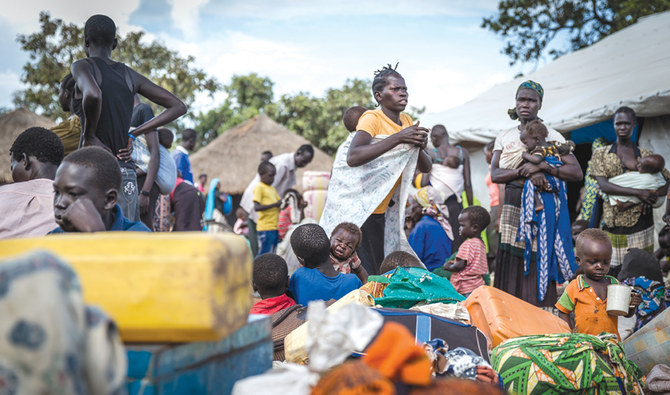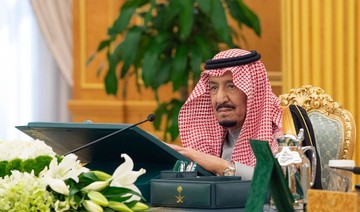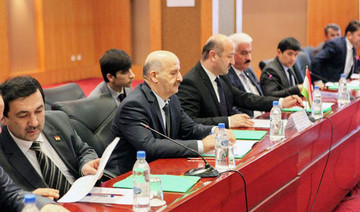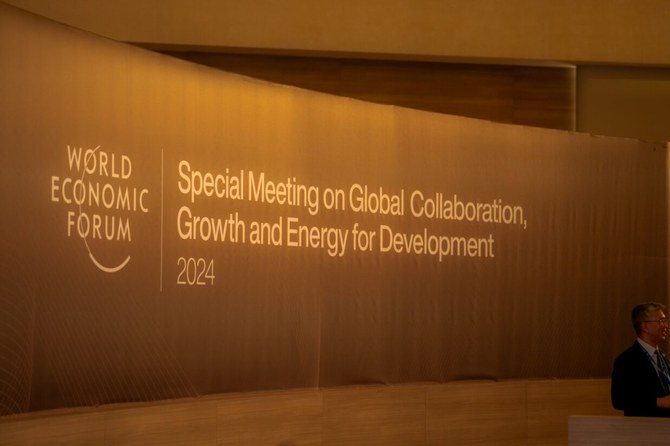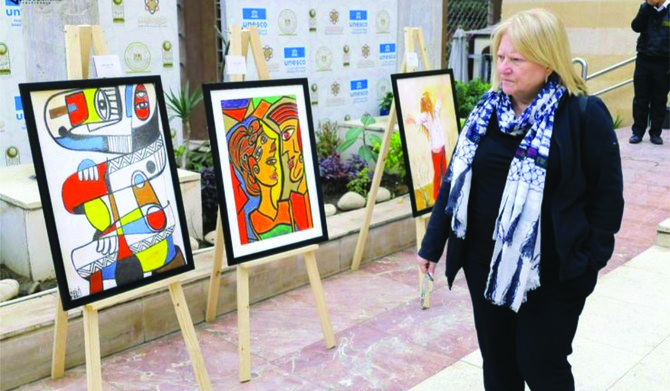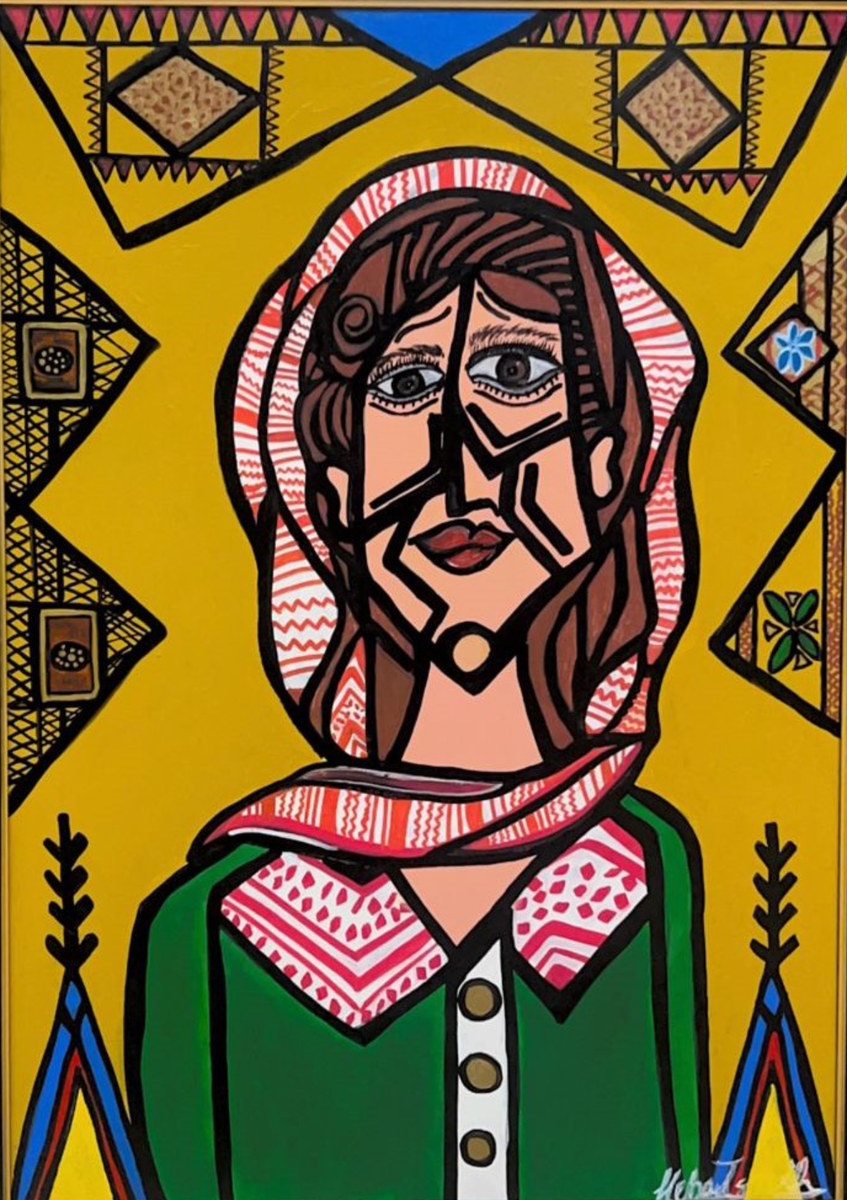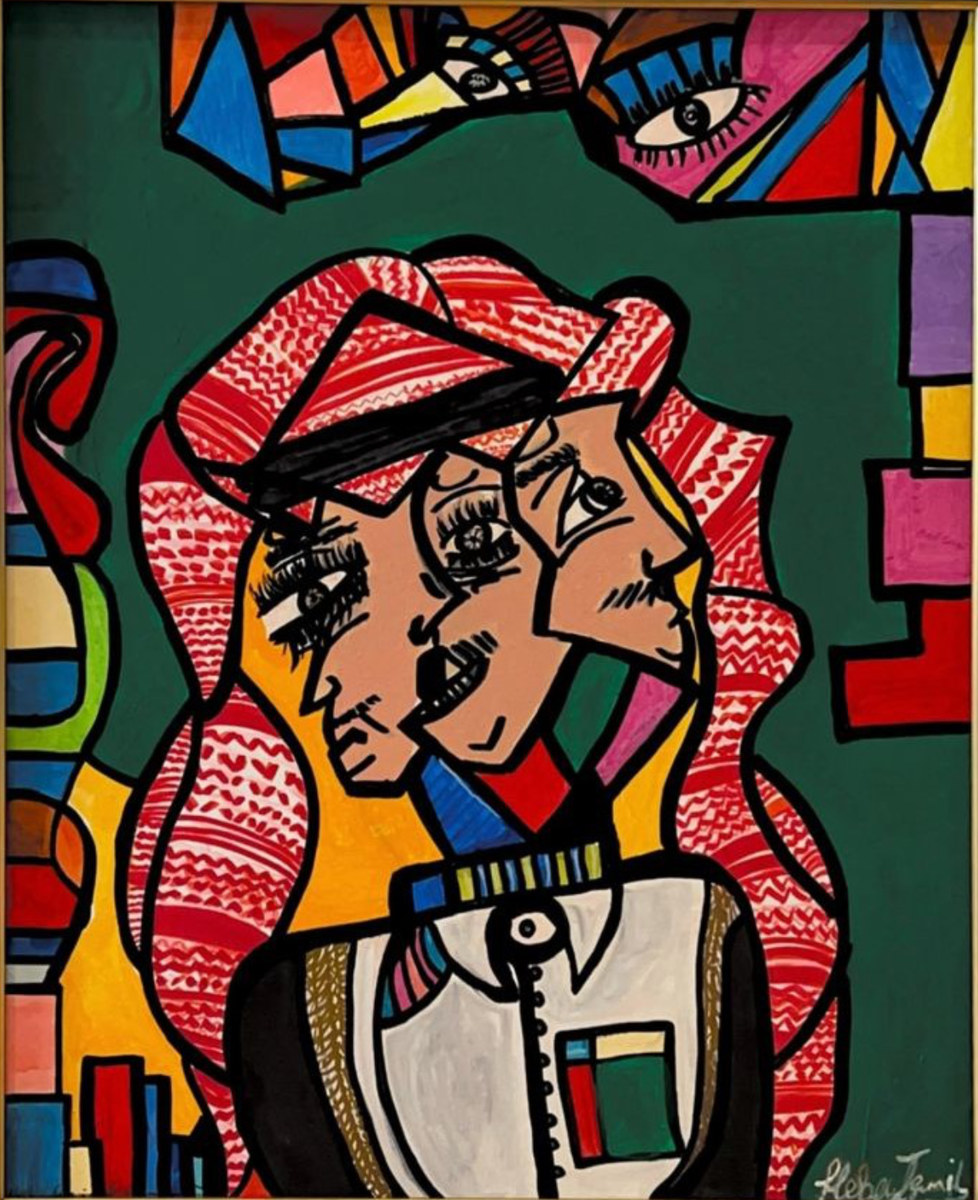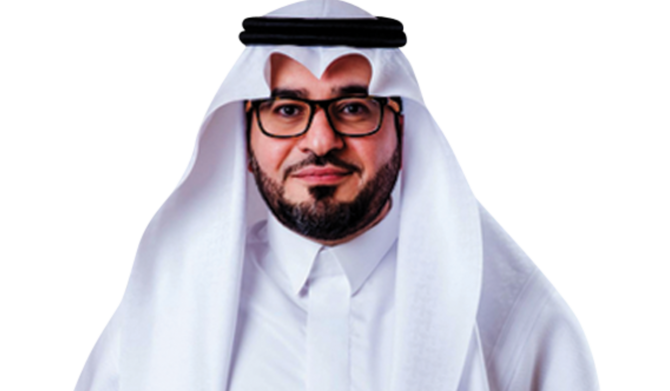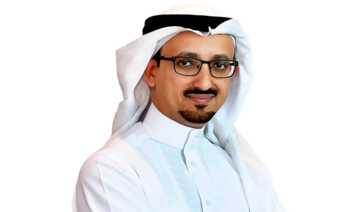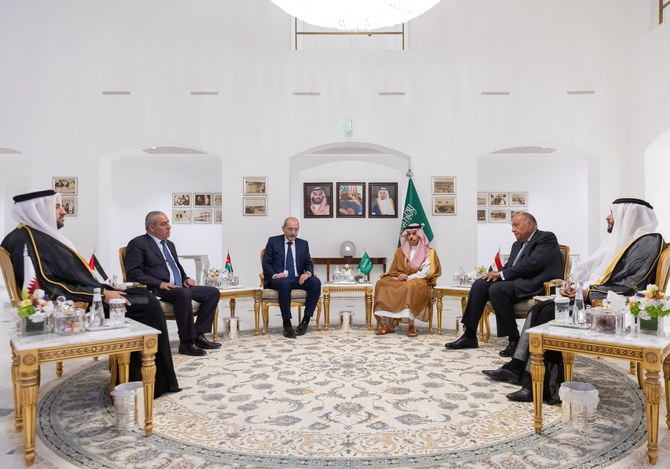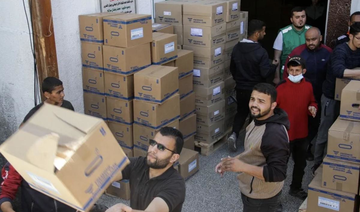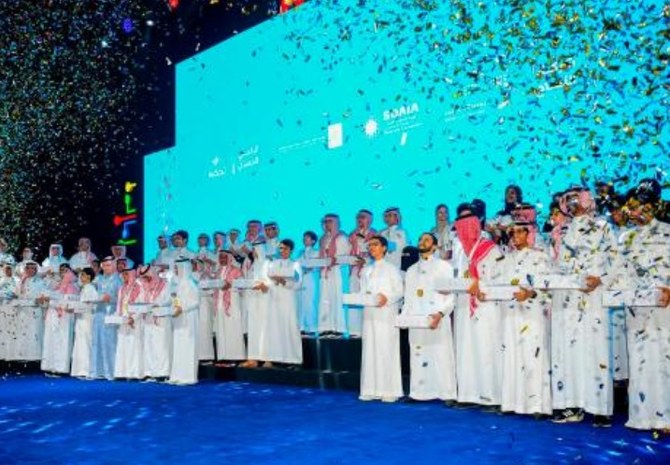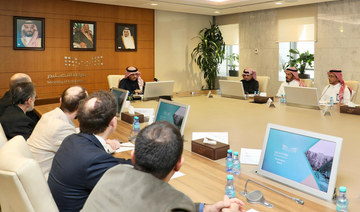DUBAI: A Saudi relief organization is taking the lead in helping to tackle the biggest humanitarian crisis to face the world.
With a record 70 million people displaced around the globe, the Kingdom is working with the UN World Food Program to make life easier for struggling refugee families.
The country is taking a novel approach to the situation by running food-for-work projects in refugee camps in Sudan and many other countries.
The aim of the Saudi International Organization for Relief, Welfare and Development (IORWD) is to change the mindset in the way refugee families are supported, to improve their productivity and increase incomes.
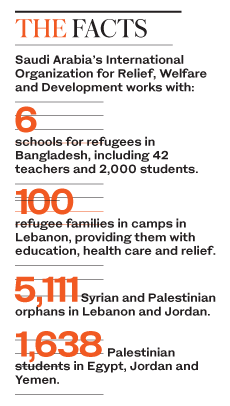 “We want to gradually stop direct support and replace it with sustainable development, and improve the situation of these families,” said Dr. Taha Al-Khateeb, director-general of programs and welfare at the organization.
“We want to gradually stop direct support and replace it with sustainable development, and improve the situation of these families,” said Dr. Taha Al-Khateeb, director-general of programs and welfare at the organization.
He was speaking at the Dubai International Humanitarian Aid and Development Conference and Exhibition (Dihad), which is themed “People on the Move” and aims to tackle the core issue of migration.
Al-Khateeb said the principle behind IORWD’s role in the process was to teach families “to fish” rather than provide them with fish every day.
It does this by offering interest-free loans of SR1,000 to SR5,000 ($265 to $1,333) per family. The first SR1,000 is a contribution towards the family’s needs, while the rest is repaid in installments, in a bid to support their work in handicrafts, cooking, and developing food products or clothes.
“These projects have been able to improve the capacity of families to provide for their needs,” Al-Khateeb said. “It’s a good but painful story — some families only need one product to improve their productivity, so our aim is to ensure they become productive and not needy.”
So far, the project has been implemented in three camps in Sudan, with more planned.
“We are trying to change the mindset in the way we provide support to these families,” he added. “We prefer to go through development programs to help them improve their productivity and increase their income. We are still working on improving our (approach).”
The organization also works with 100 refugee families in camps in Lebanon, providing them with education, health care and relief. During Ramadan, meals are offered to those fasting, as well as for Eid.
In total, the IORWD has sponsored 5,111 Syrian and Palestinian orphans in Lebanon and Jordan, as well as 1,638 Palestinian students in Egypt, Jordan and Yemen, 351 teachers and 40 educational institutes in Palestine. It also distributed 2,000 uniforms and school bags to Palestinian students in Palestine.
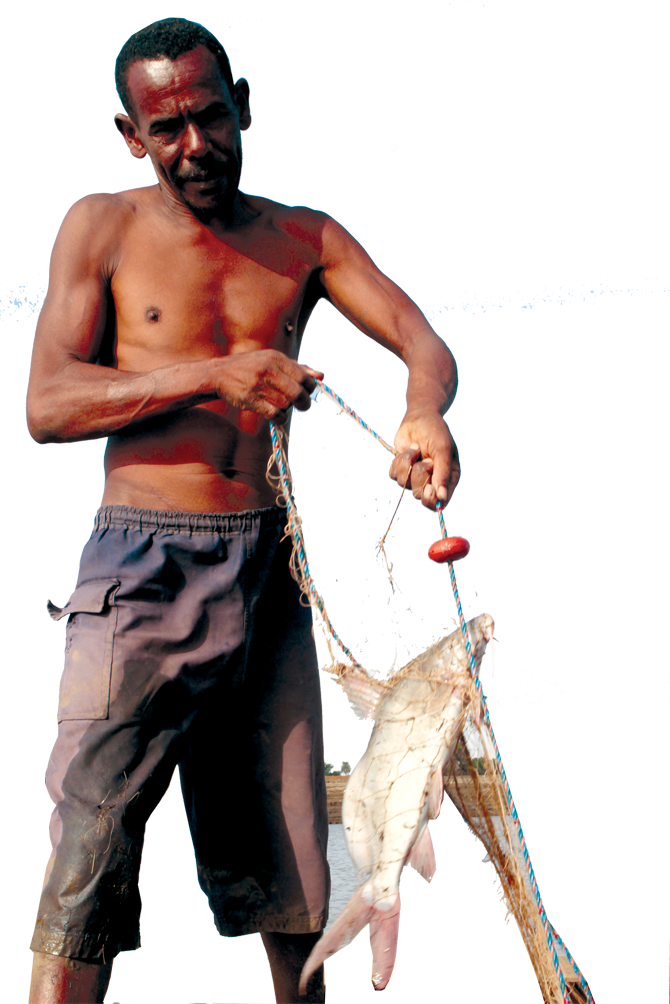
IORWD’s principle is to teach refugee families “to fish” rather than provide them with fish every day. (Getty Images)
In Bangladesh, the organization supports six schools for refugees, including 42 teachers and 2,000 students, as well as 200 Syrian students in Turkish refugee camps with SR2.25 million. In Yemen, it sponsors another six Eritrean refugee teachers.
“We must treat all migrants with the dignity and respect they deserve,” Al-Khateeb said. “In the Qur’an, it states that we are all treated equal and it requires us to be respectful towards migrants.
“The most vulnerable groups of migrants are children and those subject to exploitation,” he said. “It’s important to manage their situation well, and the same can be said about women.”
Of the millions fleeing their countries, 80 percent are women, youths and children and many are at risk of human trafficking. According to the US Congressional Research Service and the US State Department, up to 2 million people are trafficked annually worldwide, mostly from Asia.
“Not only is migration a deeply sensitive issue at the top of international and governmental agendas across the world, but the drivers and dynamics of movements are becoming ever more complex,” said Antonio Vitorino, director-general of the International Organization for Migration (IOM), at the opening of Dihad.
With 13 million people affected by the crisis in Syria and 5.5 million refugees in surrounding countries, such as Lebanon, Iraq, Jordan and Egypt, large-scale movements of people driven by diverse motivations have posed political and humanitarian challenges to the international community in recent years.
“It taught us that regional solidarity towards hosting those in need is the first and most important element of an international humanitarian response,” Vitorino said.
“We must learn to identify and effectively respond to the needs of the vulnerable on the move, both refugees and migrants, and to maintain the credibility of international systems of cooperation and governance.”
Today, 25 percent of the Lebanese population are refugees from Syria and other countries, and more than 1 million Syrian refugees are into their ninth year in Lebanon.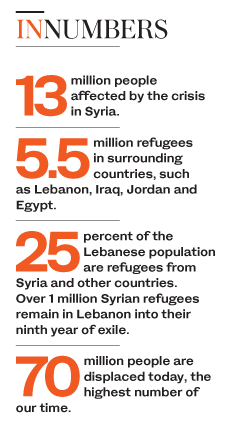
As the factors affecting movements shift and deepen, countries are being urged to adapt. “The impact of environmental change will intensify and the effect on populations will spread,” Vitorino added. “While some groups will be directly and repeatedly affected by climate-induced disasters such as flooding, drought and extreme weather events, others will find themselves affected by growing desertification, coastal erosion and instability stemming from resource scarcity.”
When combined with continued inequality, ongoing political fragility and demographic change, Vitorino argued it was clear that large-scale internal and international movements are likely to become more frequent, as people search for sustainable livelihoods for themselves and their families.
“We are confronting some of these problems and asking ourselves what this will mean for our work over the coming decades,” he added. “What will rapid urbanization mean for food delivery and how can cities become centers of innovation in delivering services, enabling diverse populations to thrive, and what proportion of the internally displaced that we see in the world today will become the vulnerable migrants and refugees of tomorrow?
“If we cannot meet their needs effectively, how can the established tools of migration management be updated to reflect the reality of increased mobility and transnationalism in today’s migration population?”
With more than 26 million refugees in the world today, the highest number in the past 50 years, time is of the essence. The UN High Commissioner for Refugees (UNHCR) has started working with regional governments to help alleviate the burden.
Last week, Amin Awad, director of the Middle East and North Africa Bureau and regional refugee coordinator at the UNHCR, visited Syria, “the epicenter of one of the largest crises of our time.”
His trip included visits to the capital Damascus, the city of Homs, and the village of Al-Hamah. “We are deeply concerned by the impact of the conflict on much of the population, those displaced and those who remained,” w said at the conference.
“The isolation and distance of services, livelihood and education have taken a toll on the population at large. We need more countries to share the burden.”



